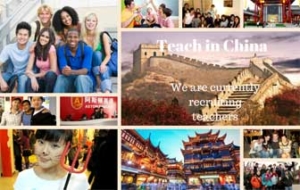Entertainment in China
As a foreigner in China, YOU are the entertainment. This will become painfully clear very early on, when you find children shouting “How do you dooooo?!” at you and giggling, when a crowd gathers to peer over your shoulder when you pull out your China guidebook on the street, or when
trying on a pair of jeans in the department store becomes a spectator sport.

When the Foreign Affairs Office invites all the foreign teachers to a lovely riverside evening of entertainment to celebrate the Mid-Autumn Moon Festival, understand who is doing the entertaining: could it be the dancing girls in the wispy costumes, or the foreign ghosts with the long noses and strange-colored hair making weird grunting noises? You might as well play along, try out your rotten Chinese, and enjoy the show. If you can’t beat ’em, join ’em.
Most Chinese cities close up around 9pm, so you’ll only find entertainment possibilities in the larger places, especially Beijing, Shanghai, and Guangzhou. If you’re truly desperate, however, almost every populated area in China seems to possess a karaoke bar these days. In the big cities, a karaoke bar
can be a very swanky and pricey place, where you can rent a private room, drink beer, eat peanuts, and sing the night away. In the small village miles away from anywhere, the karaoke bar may just be a microphone hooked up to a TV set on a rickety table in the street.
Outside eateries where you can drink beer and nibble on a cornucopia of stir-fried tidbits stay open until late, especially in summer. Eating is a social activity in China, and nine times out of ten that’s what you’ll end up doing when someone invites you out for the evening. Fighting for the bill is all part of the fun (you will rarely win).
Other forms of entertainment are becoming popular in big cities. Shanghai, Beijing, and Guangzhou now have a number of trendy disco spots, complete
with Western music and disco balls, although the cover price may not be cheap.
Some cinemas may show Western films with Chinese subtitles. Roller-skating has recently gained popularity-check out the roller-discos, where boys get to ask a girl to skate with them and hold hands as they roll around to the latest Hong Kong tunes. It’s racy stuff.
In other cities, ballroom dancing is about as wild as you’ll get. Just before dusk, position yourself in a park (often they’ll have a teahouse there, where you can buy yourself a mug of tea and sit at a table all afternoon), and wait for the dancers to appear. It’s a great show, with single-sex and mixed couples joining in. Often, people will practice their tai chi or qi gong exercises either very early in the morning (around 6am) or near dusk-look for them in parks or near the waterfront or riverside.
If you feel like practicing your English, most cities will have English corners on certain days, often Saturday evenings, usually located in a park. Prepare to be the center of attention and flooded with questions ranging from “What’s your salary?” to “Do you have a girlfriend?” This is your fifteen minutes of fame, or two hours if you prefer, or as long as your voice keeps up. If you prefer a little
less attention, hang around the local university and invite a couple of students out for dinner (most university students will have studied some English). They’ll order great food and you’ll learn a lot more than is in this site.
Shopping
You’ll find department stores in every main city in China that should have
almost everything you need: basic clothes, toiletries, cooking equipment, and so forth. Don’t expect the merchandise to be of the best quality (even the Chinese make jokes about products “Made in China”), but it will be cheap.
If you’re planning to live in China for a while, don’t go overboard on your luggage: you will be able to outfit yourself fairly well in China. If you have
certain special requirements, however, you might have some difficulty. If you are particularly tall, wide, or have especially large feet, it may be hard to find clothing, for example. It’s probably a good idea to stock up on some basic supplies like aspirin, diarrhea medicine, and Band-Aids, since these are hard to find, but shampoo, soap, face and hand cream, razors, tampons, and toothpaste are readily available.
If you’re shopping for gifts, those uniquely Chinese goodies to prove to friends
and family that you really were there, you may have to spend a little time looking. Big cities will have a Friendship Store, which used to be the only place where you could buy imported items and where foreigners shopped. Nowadays, the Friendship Store is a good resource for Chinese goods, especially arts and crafts like paintings, ceramics, stoneware, cloisonné, silk, etc. When traveling, if you see something you like, buy it then and there, for
you may never see it again. Hong Kong is really the best place for shopping anywhere near China; you might leave your gift-buying until you leave the country from there.


 Teach English in Asia
Teach English in Asia  Cruise Ship Jobs
Cruise Ship Jobs  Alaska Fishing Industry Jobs
Alaska Fishing Industry Jobs  Sharing Economy / Gig Economy
Sharing Economy / Gig Economy